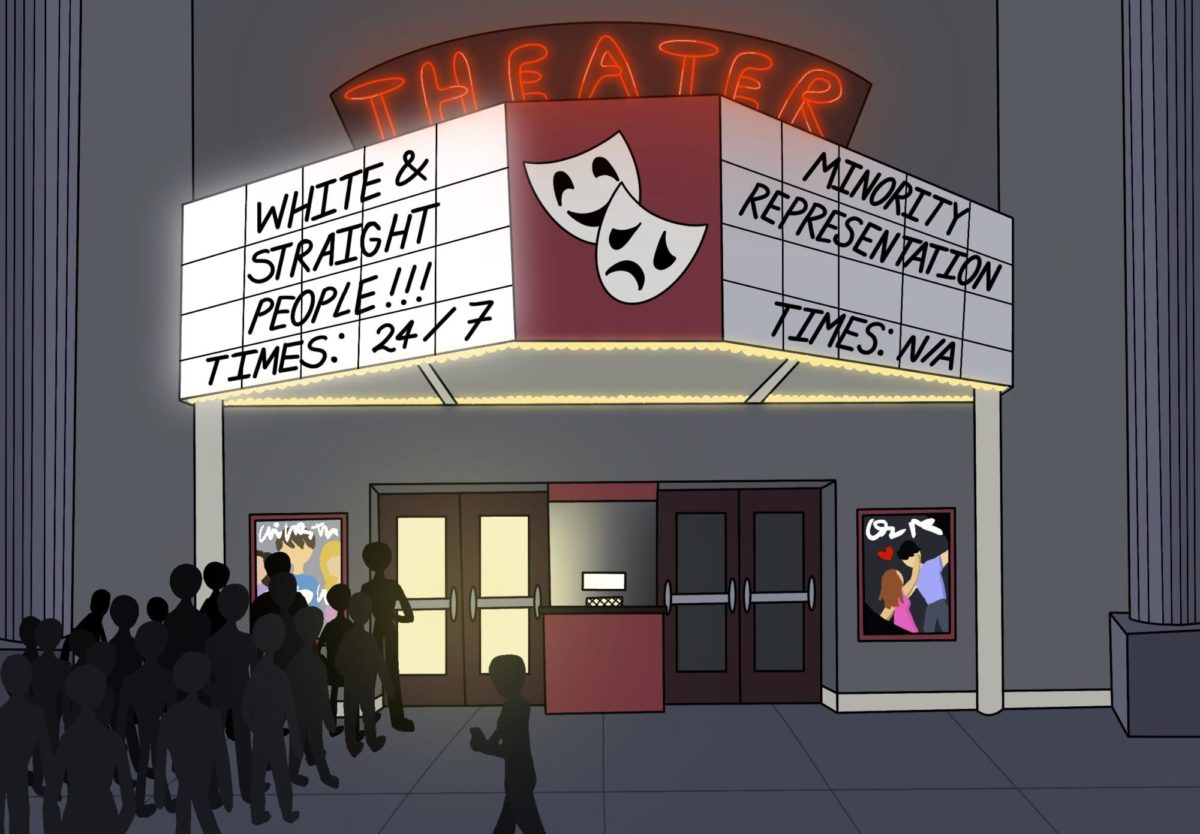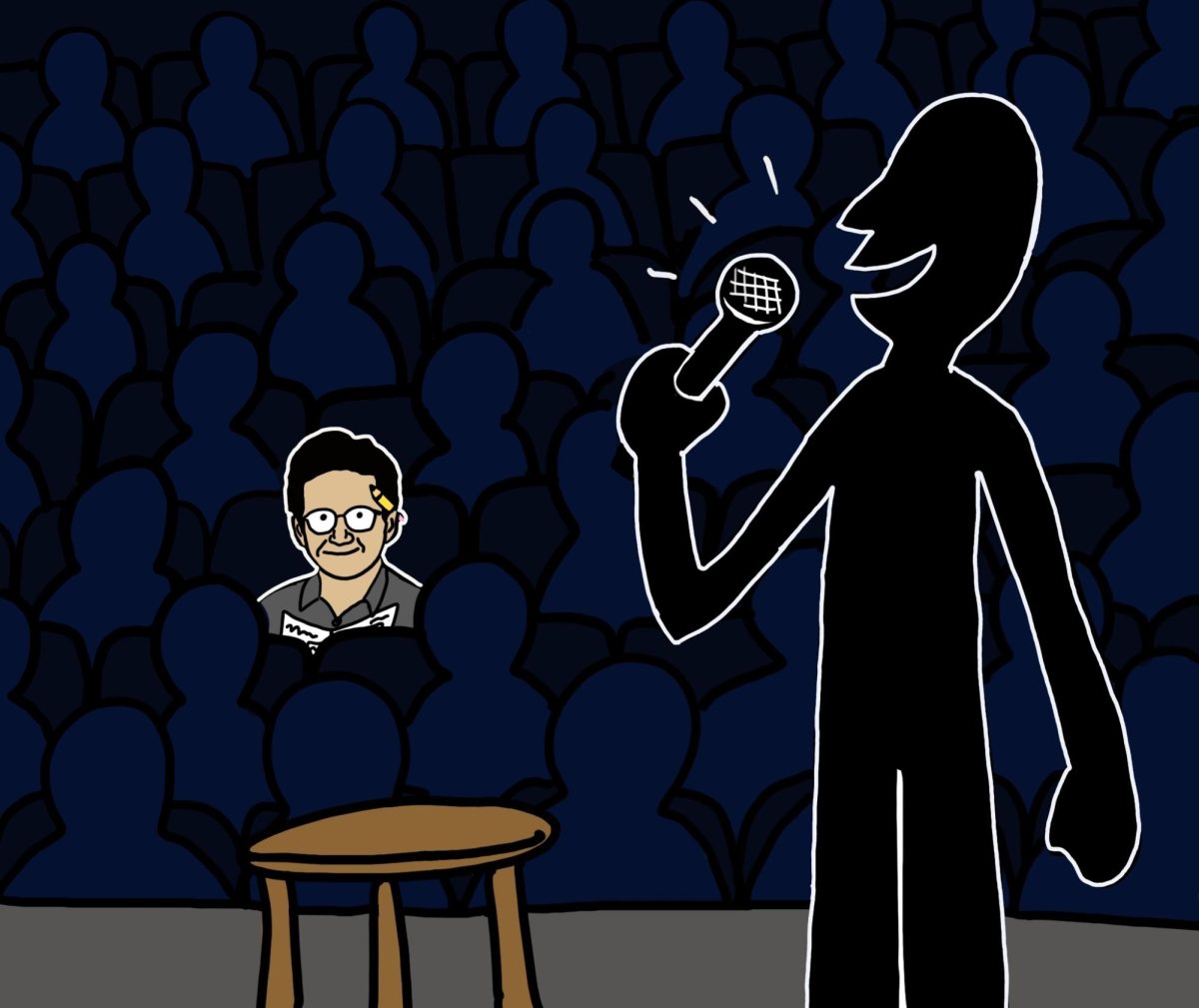September 8, the movie adaptation of the book “Aristotle and Dante Discover the Secrets of the Universe” was released. It was directed by Aitch Alberto and produced by Lin-Manuel Miranda. With an entirely Latinx cast, a story centered around a gay romance, and a director who is trans, there is lots of representation both within the story and within the people who made the film.
However, there are no showings of the movie anywhere within approximately 45 minutes of Evanston. AMC is barely showing it in any of their locations making it very difficult for a fan of the books to see it. Personally, I was very excited about the adaptation, and the more I heard, the more I looked forward to it. A trans director, a gay romance, and Lin-Manuel Miranda– what could possibly make this situation any better?
Being able to see it would definitely make this a lot better.
This movie is based on the novel by the same name, Aristotle and Dante Discover the Secrets of the Universe. Written by poet and novelist Benjamin Alire Sáenz, the story is told with beautiful and descriptive prose through the perspective of Aristotle, known as Ari. It is a coming-of-age book starring two Mexican-American teenagers, Ari and Dante, who are exploring themselves through their racial identity, sexual orientation, and family relationships. You can feel the poetic touch Sáenz brings to this story and Ari’s intense depth in his thinking about the world.
Ari’s older brother is in prison, though Ari doesn’t know why, and his father has PTSD from fighting in Vietnam. He doesn’t have many friends until he meets Dante. The phrase “opposites attract” rings true throughout the story; Ari and Dante contrast each other in many ways but still grow into each other. Watching Ari change and grow feels like watching a friend discover themself.
Though the distribution companies of the movies are highly involved on whether movies go to theaters, it is still largely up to representatives of the theaters, who act as buyers, to decide what gets played.
Seeing the representation of a variety of identities on-screen is incredibly important for audiences of all ages. Not only does it bring awareness to experiences from communities outside of your own, but it’s also very impactful seeing your own identity reflected in the media. It allows people to learn about other identities while giving people figures to connect and relate to that are like themselves.
Media usually takes a very heteronormative, cis-gendered, and white focus on stories. When someone creates something showing a perspective that differs from that, there is almost always something either offensive or missing, recurrently leaning into false stereotypes. Beyond that, there are several main issues that frequently occur when there are characters who are people of color (POC) or queer. Often, the characters are used as token diversity, use their identity as comedic relief, or are given small roles. The movies that do center around POC or queer characters are simply not talked about.
Tokenism is when there is a small group of characters with underrepresented identities to give the appearance of more diversity. Tokenism is a term that can be applied to countless Hollywood movies and is a problematic pattern that is seen time and time again. A few of the many examples of this from popular franchises include Lando from Star Wars, Cho Chang from Harry Potter, and Michel from Gilmore Girls. Though these characters may be loved by audiences, they are frequently used as ‘the exception’ to having an all-white cast.
Other times, characters are used as comedic relief by leaning into stereotypes. The popular Disney Channel show Jessie brought several racial stereotypes to the max. Ravi leans heavily into the stereotypical Indian boy trope, with a heavy accent that the actor had to go out of his way and learn to do, and his nerdy qualities. These jokes tend to hit or miss- they are often overkill, and end up with only hurtful stereotypes of large communities and no laughs. The same goes for many queer characters- who show up for a short amount of time, throw a joke to the wind about how queer they are, then leave. Their identities are used as comedic relief and nothing more. For example, All from Zoolander 2, played by Benedict Cumberbatch, is the butt of several jokes about their gender.
Another common theme in terms of representation is throwing the underrepresented communities the sidekicks or small roles. This is common in superhero movies. For example, James Rhodes in Iron Man or Heimdall in Thor. These characters help but don’t get all the dramatic action of the protagonist. The characters may be the friends and pop in to show “Oh hey! They’re not straight/cis/white!” but again, that displays tokenism and forces those characters to be singled out and portrayed differently. This is shown in characters such as Nigel and Lily in The Devil Wears Prada, Dionne in Clueless, and Poe in Five Feet Apart.
Then even when those movies are produced and lack these issues, the movies are often not even talked about- slipping into the shadows of the films that solely tell a privileged narrative. This is what happened with Aristotle and Dante. The movie offered representation for both Latinx and queer people, but the representation couldn’t make nearly as much impact when it’s not being shown. I saw no promotions for the movie and found out about it by stumbling upon a Google autofill search that said “Aristotle and Dante movie”. I then sought out trailers and information on my own.
When I tried calling AMC to inquire about the situation and lack of showings, the answering machine picked up redirecting me to their website. Once I got through to an associate, they told me they would not answer any questions. This was before I had even brought up what I was asking about.
However, even though the pattern of silencing diversity in the film industry has gone on for far too long, it is slowly getting better. Over the past couple of years, several of the most popular (and/or high-grossing) films have included both Black Panther movies, Encanto, Spider-Man: Into the Spider-Verse, followed by Spider-Man: Across the Spider-Verse, and Turning Red. All of these movies followed non-white protagonists and starred (mostly) non-white casts. These movies were all very successful and received praise for the way they made audiences feel seen and be able to connect to the characters.
Though it is getting better, there is still a long way to go.

















